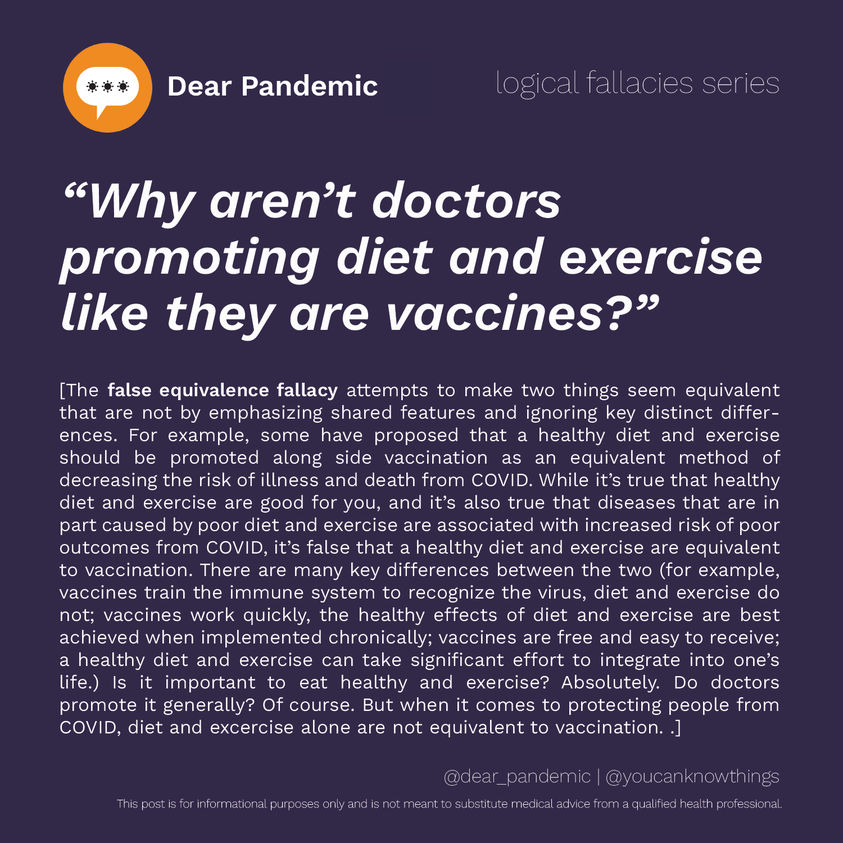At Dear Pandemic, we want to dish out science facts AND equip our readers with tools to make sense of data and science themselves.
This is the fourth post in an ongoing series by Dr. Kristen Panthagani of You Can Know Things, in which she dissects common logical fallacies that have led people astray during the pandemic.
⚠️The False Equivalence Fallacy⚠️
“Why aren’t doctors promoting diet and exercise like they are vaccines?”
The false equivalence fallacy attempts to make two things seem equivalent that are not by emphasizing shared features and ignoring key distinct differences. For example, some have proposed that healthy diet and exercise should be promoted alongside vaccination as an equivalent method of reducing risk of illness and death from COVID.
While it’s true that healthy diet and exercise are good for you, and it’s also true that diseases that are in part caused by poor diet and exercise are associated with increased risk of poor outcomes from COVID, it’s false that a healthy diet and exercise are equivalent to vaccination. There are many key differences between the two (for example, vaccines train the immune system to recognize the virus, diet and exercise do not; vaccines work quickly, the healthy effects of diet and exercise are best achieved when implemented chronically; vaccines are free and easy to receive; a healthy diet and exercise can take significant effort to integrate into one’s life.) Is it important to eat healthy and exercise? Absolutely. Do doctors promote it generally? Of course. But when it comes to protecting people from COVID, diet and exercise alone are not equivalent to vaccination.
⬇️ A note on logical fallacies:
Logical fallacies are common patterns of reasoning that seem true on the surface but have one or more critical flaws. At their root, many are oversimplifications–like a cognitive shortcut. They are appealing because they make something complex, like vaccine safety or the efficacy of masks, into something simple and easy to understand. However, this oversimplification often leaves out important details, leading to the wrong conclusions.
Logical fallacies are common and used by people arguing both for and against nearly every pandemic topic. They are NOT a sign of stupidity or lack of intelligence: they have tripped up nearly everyone at some point. And just because someone uses a fallacy in their argument doesn’t automatically mean they’re wrong — (that’s the fallacy fallacy!). It simply means they haven’t provided adequate evidence supporting their argument, but that evidence may in fact exist. It’s useful to recognize logical fallacies in our own thinking so we can make more accurate conclusions about the world around us.
Stay safe, stay sane, and stay alert to logical fallacies!

More reading:
Healthy Diet & Exercise vs. COVID Vaccination? Try both!
More in this series:
The Appeal to Authority Fallacy
Note: This post is for informational purposes only and is not meant to substitute medical advice from a qualified health professional.


